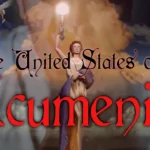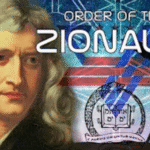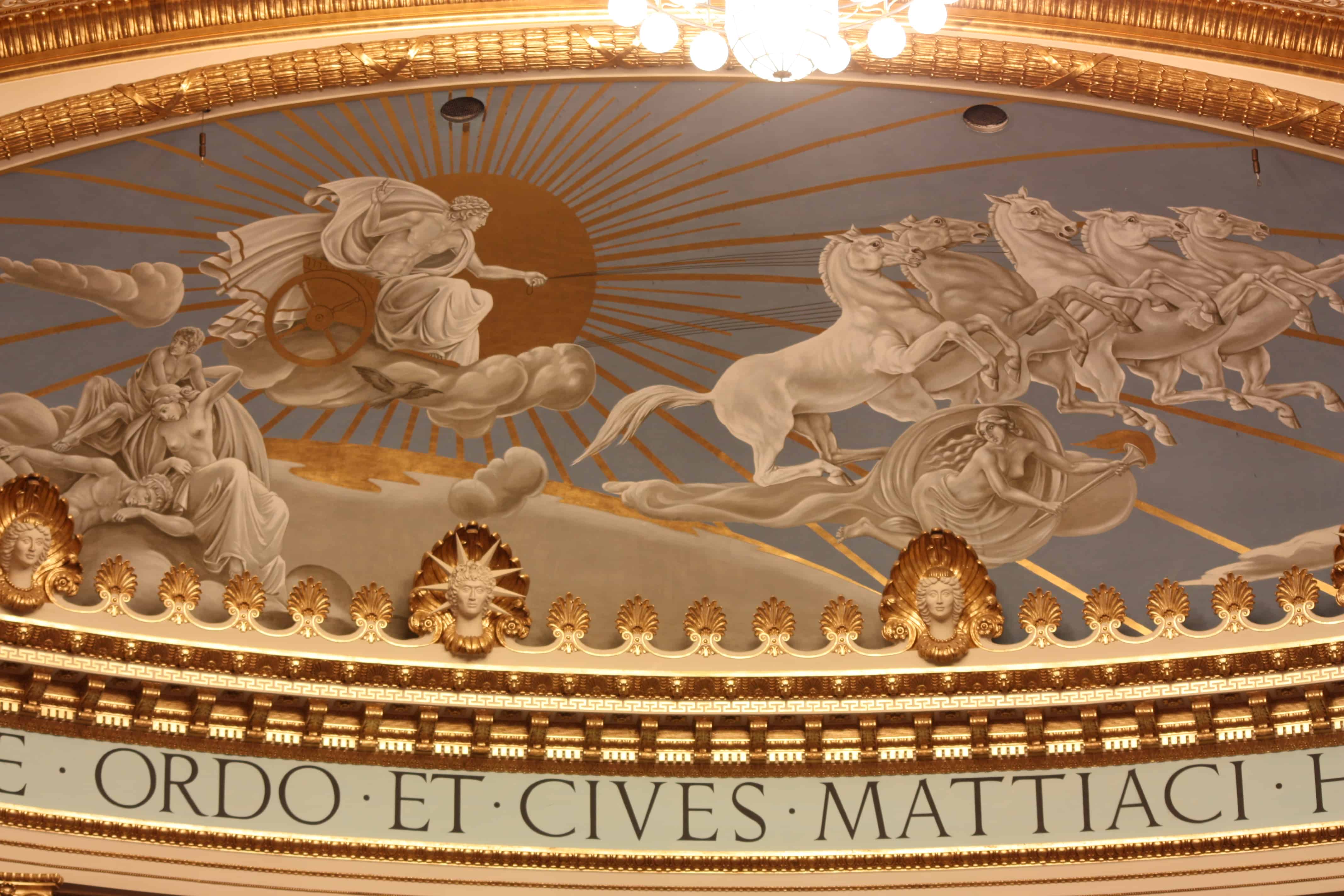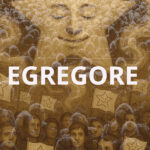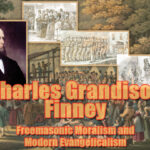UPDATED 8/1/2016
by Yvonne Nachtigal | CO
Let’s look at the passage in Genesis 6 that the fallen angel/human hybrid story is being largely based on:
“And it came to pass, when men began to multiply on the face of the earth, and daughters were born unto them,
That the sons of God saw the daughters of men that they were fair; and they took them wives of all which they chose.
And the Lord said, My spirit shall not always strive with man, for that he also is flesh: yet his days shall be an hundred and twenty years.
There were giants in the earth in those days; and also after that, when the sons of God came in unto the daughters of men, and they bare children to them, the same became mighty men which were of old, men of renown.
And God saw that the wickedness of man was great in the earth, and that every imagination of the thoughts of his heart was only evil continually.
And it repented the Lord that he had made man on the earth, and it grieved him at his heart.
And the Lord said, I will destroy man whom I have created from the face of the earth; both man, and beast, and the creeping thing, and the fowls of the air; for it repenteth me that I have made them.
But Noah found grace in the eyes of the Lord.
These are the generations of Noah: Noah was a just man and perfect in his generations, and Noah walked with God.” – Genesis 6:1-9
Were the “Nephilim,” the “giants” of the Bible, actually part fallen angel / part human? Are they planning to return to the earth? We’re told that skeletal remains have been found to support the fact that giant men existed on the earth, but before challenging that, I want to look more closely at what we’re being told about who these beings were and how they came to be.
The Sons of God vs. the Sons of Men
To try to understand what we’re being told in this passage, we need to look at the phrase “sons of God”. Who is that referring to? Were they fallen angels? The story being presented is that angels married (had sexual relations with) human women and that the giants-of-old were their physical offspring. We are directed Genesis chapter 6:1-4 to support this.
“When mankind began to multiply on the face of the earth, and daughters were born to them, the sons of God saw that the daughters of mankind were beautiful and they married any of them they chose.
So the Lord said, ‘My Spirit will not remain in mankind indefinitely, since they are mortal. They will remain for one hundred and twenty more years.’
The Nephilim were on the earth in those days, and also afterward, when the sons of God came in to the daughters of man and they bore children to them. These were the mighty men who were of old, the men of renown.” Genesis 6:1-4
From there, we’re typically directed to extra-biblical sources that include the book of Enoch, pagan and occult writings as well as Catholic prophecies are cited to help support the interpretation. The book of Enoch is a “pseudepigraphal’ writing; (a big word that means writing of unknown authorship, that’s been attributed to a particular writer. It’s important to realize that Enoch himself could not have written the book of Enoch, since he lived before the flood and everything before the flood was destroyed.) The book of Enoch was largely rejected as part of the canon of scripture in the 4th century AD.
But is that the correct interpretation of the passage?
Who were the “sons of God?” Are there other places in the Bible where the sons of God are mentioned? This one in Job is often quoted:
“Now there was a day when the sons of God came to present themselves before the LORD, and Satan also came among them.” Job 1:6.
The passage in Job is the one verse in the Bible where it sounds like the “sons of God” were possibly angels. But even if that’s the case, does that conclusively tell us that the term in Genesis 6:2 also refers to angels? Actually, in the Bible, the common meaning for “sons of God” is “believers.”
“But as many as received him, to them gave He gave power to become the sons of God, even to them that believe on his name” John 1:12.
We should take into consideration that Job is a poetic book and that it is the only place where angels appear to be called “sons of God.” It’s makes sense to conclude that the normal meaning is what we should apply to the term in Genesis 6, rather than the exception.
We find “sons of God,” mentioned 11 times in Scripture. Six times in the New Testament, and each time it refers to the children of God. John 1 says:
“As many as received Him, to them gave He power to become the sons of God, even to them that believe on His name.” John 1:12
In Romans 8 it says:
“For as many as are led by the Spirit of God, they are the sons of God.” Romans 8:14
One possible explanation for who the Sons of God in Genesis 6 were, is men that had faith in God. Those who were in rebellion against God were known as the Sons (or daughters) of Men. This is referred to as the “sons of Seth” theory.
If this is the case, then what we are seeing in Genesis 6:4 are men who had faith in God lusting after (faithless) “daughters of men,” to intermarry, and that the children this union produced “became” the “Nephilim”. Notice that the scripture doesn’t say they simply were born Nephilim, but that they “became”.
“ There were giants in the earth in those days; and also after that, when the sons of God came in unto the daughters of men, and they bare children to them, the same became mighty men which were of old, men of renown.” Gen 6:4
Later, after the flood, the Bible tells us that Nimrod also “began to be a ‘mighty one’”, literal translation: “Gibborim”, like the word “Nephilim” it is also widely translated as “giant” or “mighty hunter”. Whatever is meant by ‘Gibborim’ it’s clear by the text that Nimrod wasn’t born that way.
“And Cush begat Nimrod: he began to be a mighty one in the earth.” Gen 10:8
We see in the Bible that the Nephilim were on the earth before and after the flood. When the Israelites were spying out what was to become the land of Israel, they saw giants:
“And there we saw the giants, the sons of Anak, which come of the giants: and we were in our own sight as grasshoppers, and so we were in their sight.” Numbers 13:33
Goliath and his brothers were also said to be giants. What made these evil, demon possessed men incredibly enormous – up to 40 feet tall … or were they?
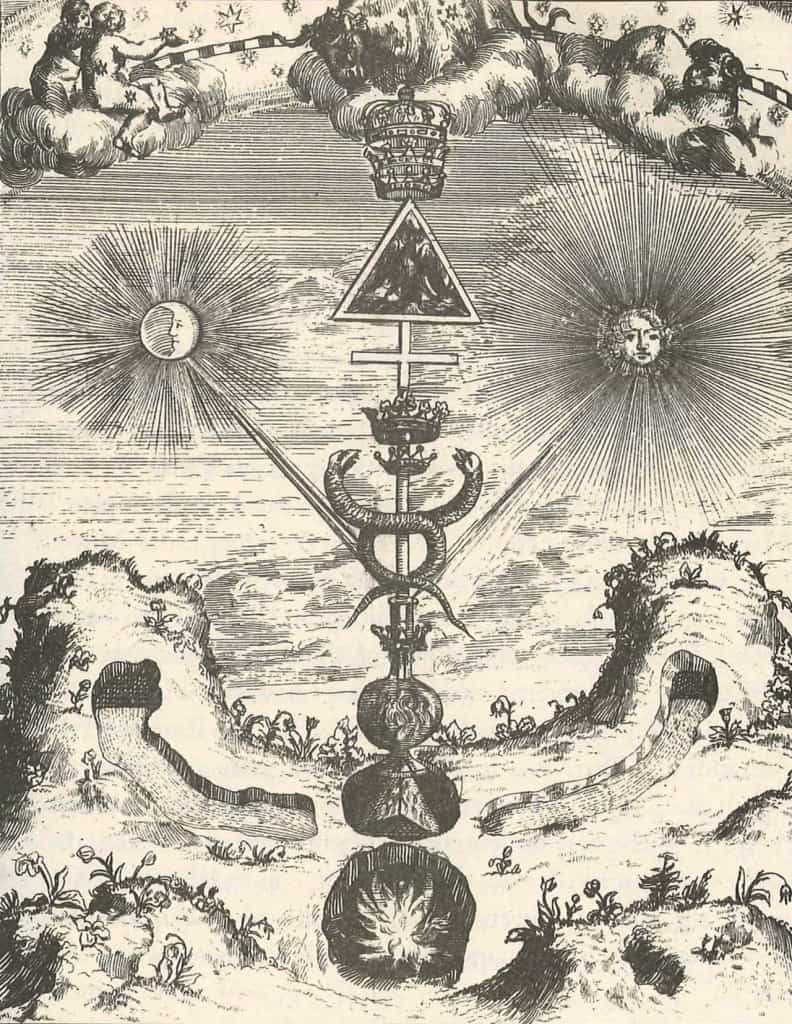
Were the sons of god, the esoteric “ELITE” of Noah’s day?
The elite of today are raised in preparation to “handle the reigns of power.” They very much see themselves as ‘gods’, a ruling class of people who are superior to the common man. Freemasons love the Greek mythological story of Helios, a sun god, one of the Titans. The story goes that Helios drove the chariot of the sun across the sky on a daily basis as it was pulled by horses. ‘Handling the Reigns’, he got too close to the sun and plummeted to the earth. The elite see themselves as those who must “handle the reigns of Helios horses” in the maintenance and furthering of power. That is why they toughen their children through torture, abuse and mind control. These high level Satanists see themselves as the ‘gods’ of this world. Dr David Livingston of the Associates for Biblical Research presents some insights that are not popularly being considered. Rather than the two explanations being offered for the Genesis 6 text, “fallen angels” and “sons of Seth”, he suggests that there is a third possibility; that the sons of god were rulers or princes, tyrannical ‘divine’ kings. I can’t help but draw the correlation between this and the hidden, satanic ‘rulers’ of our day. I’ve somewhat abridged the following lengthy article by Dr David P. Livingston of Associates for Biblical Research, but still included much of it because I’m so impressed with his argument. Dr Livingston was the staff archaeologist for the Arc Imaging effort in Turkey to find Noah’s Ark.
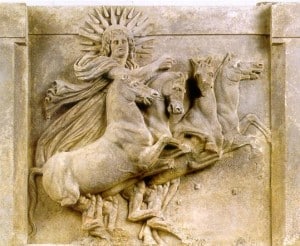
Kings
Dr David Livingston of Associates for Biblical Research
“Some say they were fallen angels. However, to have children, they must have had sex, and angels do not. “They are neither male nor female.” Furthermore, if the judgment of the Flood was against the “sons of god” and they were angels, they would actually have escaped it since they are spiritual beings. (bold CO)
[…]A new interpretation has been suggested by Meredith Kline (in The Westminster Theological Journal, May 1962). His thesis is that the “sons of the god” were tyrannical “divine” kings like those we know from historical times in the ancient Near East.:
“The fact that an historical theme so prominently treated in the Sumero-Babylonian epic tradition finds no counterpart (or connection with) Genesis 3-6 according to standard (traditional) interpretations is itself good reason to suspect that these interpretations have been missing the point (p. 199).”
“Perhaps a combination of the first (fallen angels) and third (sons of Seth) is the best explanation. That is, that the “sons of the gods” may be demon-possessed rulers!
If Kline is correct, then the Genesis 6 reference may be to real men (rulers) coming onto history’s stage with spurious claims to divinity in defiance of the authority of Jehovah God. Instead of acknowledging His Lordship, they established their own authority as supreme head of a fabricated religio-politico system; then they held their subjects in gross spiritual darkness and abject physical slavery. Each king, in his city-state (in historical times) claimed to be a “son of the patron god or goddess” (of his city or empire). In other words, he was the self-proclaimed representative of the local god on earth.
Thus, the king is divine, he is god, and manifested himself as such especially on the New Year Festival. And this is not the result of a long history of evolution, but goes back to the earliest times. (Our emphasis. Ivan Engnell, Studies in Divine Kingship in the Ancient Near East. Oxford, 1967, p. 18.)
We see no reason why historically well-established post-Flood patterns cannot also explain pre-Flood conditions. Paralleling the biblical record we have well-known accounts like the Sumerian Kinglist and the Gilgamesh Epic which speak both of pre- and post-Flood situations; but only the Bible has the detail and accuracy to give the true picture.”
“[…]we see Cain first establishing a city-state when he deliberately forsook Jehovah and “went into a condition of wandering.” The despotic pattern inherent in this system is seen in Lamech’s polygamy and possible human sacrifice, all part of a humanly-established religious system. Historic parallels are again easily discernible in Genesis 10-11, with names of well-known post-Flood city-states listed. Then there is the account of the great rebellion at Babylon with the building of the first ziggurat or temple-tower, all part of a (post-Flood) re-established anti-Jehovah religion. At the very heart of this religion is a king claiming to be a “son of the gods.”
An excellent volume on ancient cities is that of Fustel de Coulange, The Ancient City (Doubleday Anchor Book). Although written in 1864, it has not become outdated. Coulange says in regard to our topic,
With the ancients, a city was never formed by degrees, by the slow increase of men and houses. They founded a city all at once, all entire in a day . . . As soon as the families . . . had agreed to unite and have the same worship, they immediately founded the city as a sanctuary for this common worship, and thus the foundation of a city was always a religious act (Our emphasis, p. 134).
This fact may well be the basis on which Cain founded the first city and on which many cities were subsequently founded until the Gospel came.
“Perhaps there never were any gods without kings, or kings without gods. When we have discovered the origin of divine kingship we shall know, but at present we only know that when history begins there are kings, the representatives of gods” (Our emphasis. A. M. Hocart, Kingship. Oxford, 1927, p. 7).
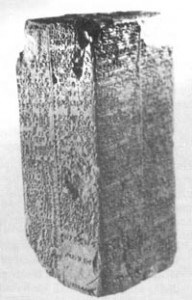
[..]Genesis 6 seems to indicate that kings were acting like gods before the beginning of history as we know it – before the beginning of Sumer.
In considering divine kingship, it should be noted that “kingship” is not the same as “king,” the person; nor “kingdom,” the king’s domain (which includes people and property). “Kingship” is authority, the authority to rule. A problem in any political system is how to get this authority. In the USA we have a system based on consent by the governed. (This concept makes it difficult, incidentally, to understand the absolutism of the ancient system.) When one desires absolute authority, such as in the ancient Near East, he must get it by force or subterfuge, or a combination of both, which is the most usual method.
Thus, divine kingship did not evolve. It was fabricated – deliberately formulated – usually by a group of priest-nobles who supported one man in power.
Having said that, it follows that the purpose of myths, epics and literature on clay tablets, papyrii, parchments, and monuments, have the fundamental purpose of establishing and maintaining the right-to-rule a certain area and people. Clever men (priest-nobles) manipulated the populace’s religious instincts to cause them to follow and obey the local god’s “son.” He owned the people and land, in theory at least. And he acted either as god (in Egypt), or as his representative (in Mesopotamia and other cultures). When all the literature and monuments were used to glorify and exalt this man as the son, or representative, of god, religion became the opiate (binder and blinder) of the people! Manipulation of religion for political purposes began in Sumer, was picked up in Akkad (Old Babylon), revised with the same themes in Assyria and New Babylon, was enjoyed by Persian monarchs, captivated Alexander and his successors (Antiochus “Epiphanus” means “the revelation of god”), and was copied by Rome. (It is even found in Africa, the Far East, and the Americas.)
[…]When Alexander claimed to be the son of Zeus he was merely continuing, reviving, or borrowing from the East an ancient belief that the first-born of the king was really the son of a god who had assumed bodily form in order to lie with the Queen, a belief which was current in Egypt under the Early Dynasties of the Empire, if not earlier. The later Romans had to accept the divinity of kings with their empire . . . . Having thus re-established their sway over Western Europe the divine kings of the world did not again surrender it except to another Divine King, a Spiritual King, incarnated once for all in order ever after to rule over the souls of men (Hocart, pp. 16, 16).
This is most interesting when one recalls that Nebuchadnezzar (a “divine” emperor whose name may mean “Nebo has protected the succession-rights”) had a vision in which kingdoms having divine kingship were finally smashed by the kingdom of Christ, the true King who was truly Divine (Daniel 2).
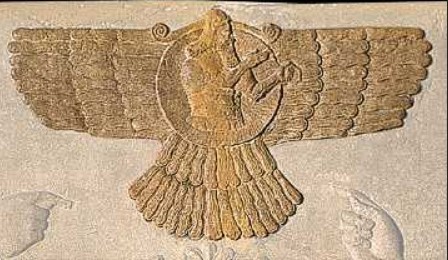
“Sons of the Gods”
In Scripture, adherents of a religious system were called “sons.” For instance, the “sons of Hamor” in Genesis 33:19 must have belonged to a cult in which donkeys were sacrificed while making a covenant (cf. G. E. Wright,Shechem. McGraw-Hill, 1965, p. 131). E. Kautzsch in Gesenius’ Hebrew Grammar (p. 418, u) says,
“ben denotes membership of a guild or society (or of a tribe, or any definite class). Thus benei haelohim (of Genesis 6 and Job) properly means not ‘sons of god(s),’ but beings of the class of elohim.”
Many references are found in the Old Testament to “sons (followers) of the prophets.” Even in the New Testament, Paul called Timothy his “son” (or disciple). It may not, therefore, be out of line to suggest that a follower of a temple-order would be a “son” of the order (or “class”, as Kautzsch calls it), including the priest-king. But, in the latter’s case, he would be called “son of the god so and so . . .” For instance, the city of Ashur — which became the center of the Assyrian Empire — had a patron god also named Ashur. In the seventh-century BC/BCE, the well-known Assyrian emperor, Ashurbanipal, came to power and took upon himself a name which means “Ashur Has Made a Son.”
Cities with their patron gods, then, developed a system that helps us understand the meaning of Genesis 6:2. Such a practice was so widespread that everyone reading this passage in ancient times would immediately understand what was meant. The “sons of the gods” include all city-kings. Or, it may be describing just one city’s typical religio-politico system, the king with the religious leaders.
Since the “sons of god” are temple adherents, the writer of Genesis is not necessarily calling them this in sarcasm. He is using the term in the oriental sense. However, he did not mean that they were actually divine, only that they were adherents of another religious system. On the other hand, believers were not called by this term in the 0ld Testament.
By this simple literary stroke the author at once caught the spirit of ancient paganism and suggested darkly the satanic shapes that formed the background of the human revolt against the King of Kings. For these “sons of the god” were of all the seed of the serpent most like their father (Kline, p. 192).
Sacred Marriage.
If “the sons of the gods” are despots pretending to be “divine” kings, then who are the “daughters of men?” Possibly the children of Seth, that is, “believers.” Or, they may simply have been “men,” common people, in contrast to “divine” kings. Likely this latter is the sense in which it is used since it describes well the practices of the ancient Near East. There, tyrants took (or “snatched away”) whoever they chose of the daughters of the common man. They were his “property.”
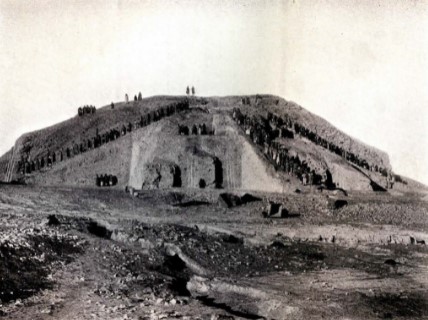
The Hebrew word laqach means “to take, to grab and pull away.” But the modern Hebrew meaning is simply “to marry.” In Genesis 6, it likely means that the sons of the gods forcibly took the daughters of “men,” whoever and whenever they chose. In the historical period, “divine” kings followed in their footsteps, for it is here we learn that the kings, in the name of their god-father, claimed to own all the people. Of course, this meant the women really belonged to him since he was “son of the creator.”
A very early example of this is the epic hero Gilgamesh. The men of his city, Uruk, raged at him for ravishing their wives and daughters. We see the problem in Scripture when Sarah was taken from Abraham by the Egyptian Pharaoh (Genesis 12:12f). Abimelech of Gerar took Rachel from Jacob. The “prince” of Shechem took Dinah from Jacob. Later, Esther was chosen from among the most beautiful (illustrating that the ruler could have whatever women he wished). Even in Israel, the practice was picked up (although not by kings claiming to be divine). David took plural wives and ended with Abigail, the fairest in the land. Solomon then went “all out” in the kingly tradition of wife-getting and ruined Israel.
Another practice from historic times may have a bearing on the meaning of this. Once each year in Mesopotamia the New Year’s Festival was celebrated.
Each city-state ensured the fertility of its own fields and the fecundity of its own people and cattle by means of a Sacred Marriage between its patron-god and one of its goddesses (Georges Roux, Ancient Iraq. Penguin Book, p. 90).
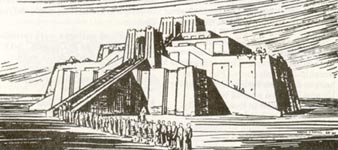
The king represented the god, and one of the most beautiful women in the land represented the goddess. In the “sacred” marriage the king represents Father God, or Heaven, and the woman represents Mother Earth being fertilized. This is the heart of the fertility cult concept. (It may be difficult for 20th-century evangelicals to grasp the complete depravity of these ancient societies. Even the Apostle Paul did not want to elaborate on their shameful activities.) If the practices described above follows after the pre-Flood situation, and it bears a remarkable resemblance, then it will help us to realize that this idolizing of immorality, brought on by complete rebellion against the lord, made the Flood necessary to cleanse the earth.
“Flesh” . . . Not Gods. Further confirmation that Genesis 6 refers to human tyrants, “divine” kings, is seen in the way the Lord refers to them in verse 3. They are “flesh.” The Hebrew word is, basar, and is used today for meat hanging on a hook in the meat market — just plain, perishable flesh. To Jehovah there is nothing at all divine about these “sons of the gods.” They have only assumed divinity to themselves, and have corrupted all mankind by directing the worship He deserves to their own foul selves. Thus, He will not “strive” any more to correct them. The decision has been made — obliterate them! (cf. Ezekiel 28:2.)
“Fallen Giants” “Giants” in verse 4 may mean tall men. The word niphal refers sometimes in Scripture to men of large stature. But it also means “to fall.” It may have a double meaning here — tall men who have fallen from Jehovah’s favor, men who sin grossly.
“Tyrants” “Mighty men” are such in the sense of tyranny. Gibborim has that meaning. These were men who “made a name for themselves.” That is, men renowned for their infamy and “idolized” for it. (We can see a revival of this rebellious way in Genesis 11:4, “. . . let us make us a name . . .”) On the other hand, a true believer should “humble himself under the mighty hand of God who will exalt him [make him a name] in due time.”
“Corruption” Verse 5 refers to the total state of corruption this whole system brings on. It should not be a new paragraph in Scripture. When men make a god in their own image and then worship that god, “every imagination and thought of the heart is only evil continually!” A vicious cycle of degeneration carries men downward. Man’s highest worship becomes that of his lowest nature. The gods act worse than men. People caught in a culture of this kind cannot escape. They cannot worship Jehovah there. For Abraham to do so, he had to come out of Ur and live as a nomad with his family. Lot tried to live in the city-state of Sodom, but lost his family. Sodom was dedicated to homosexuality.
If believers were to worship the Lord they would have to live as nomads. That explains why He gave them a special land and told them to exterminate the inhabitants when they finally settled there. To follow their ways would bring certain destruction. And so it is to this hour. Paul tells us today, “Wherefore, come out from among them and be ye separate (to the Lord)” (2 Corinthians 6:17).
Salvation! Verses 1-8 are a unit, with the conclusions that only one man found grace in the eyes of the living, true God – Noah. Many ask, “How could a loving God destroy all mankind?” The answer is that His love is shown in that He saved anyone at all! They all deserved to die for their sins, including Noah. But he and his family were spared by the grace and love of God, and were used of God to reinstitute the race. Tragically, after some time, corruption again enveloped mankind and God had to tell Abraham to get out of Ur to save his own family. With Abraham — one faithful man and his family — God started over again to develop a faithful people.”
pt 2



